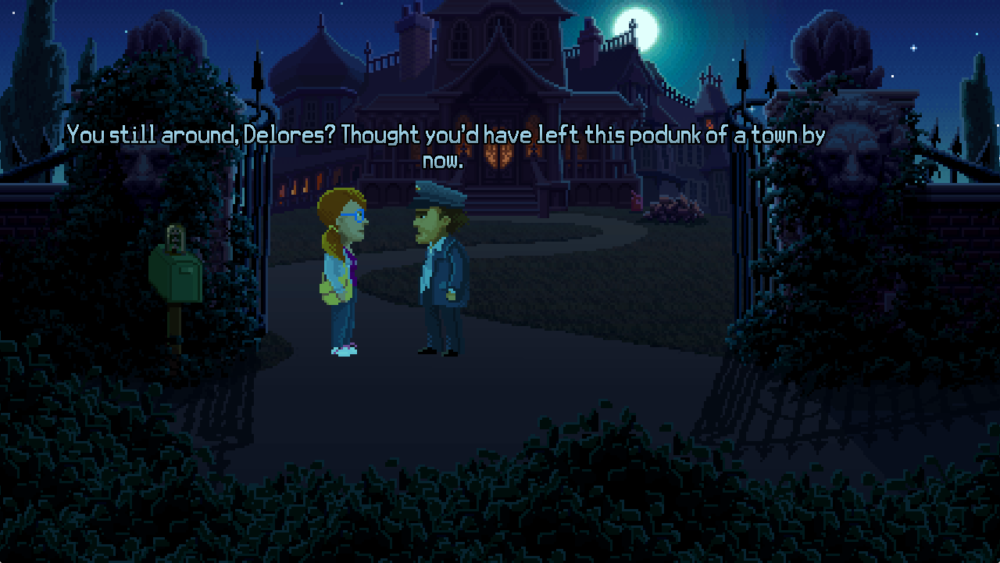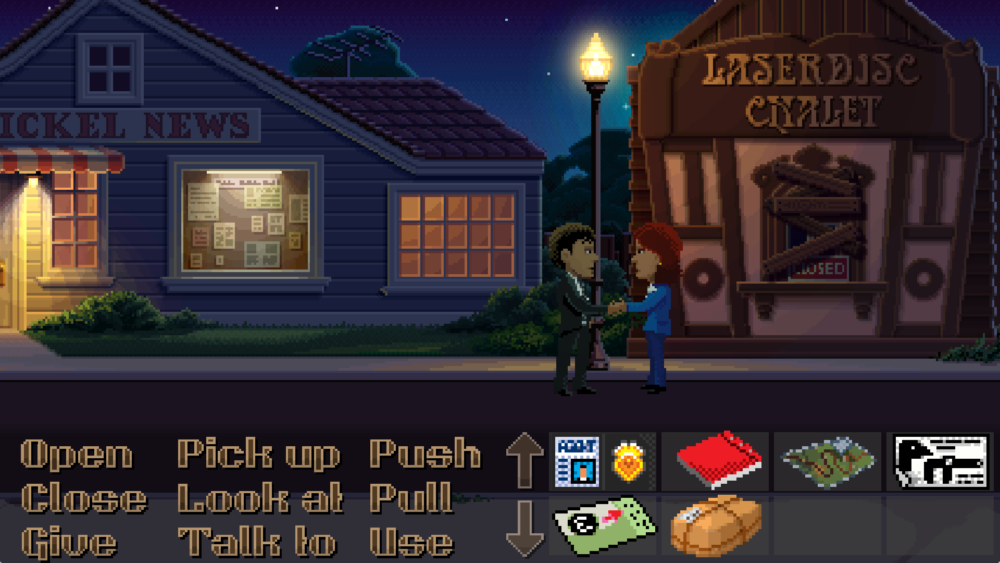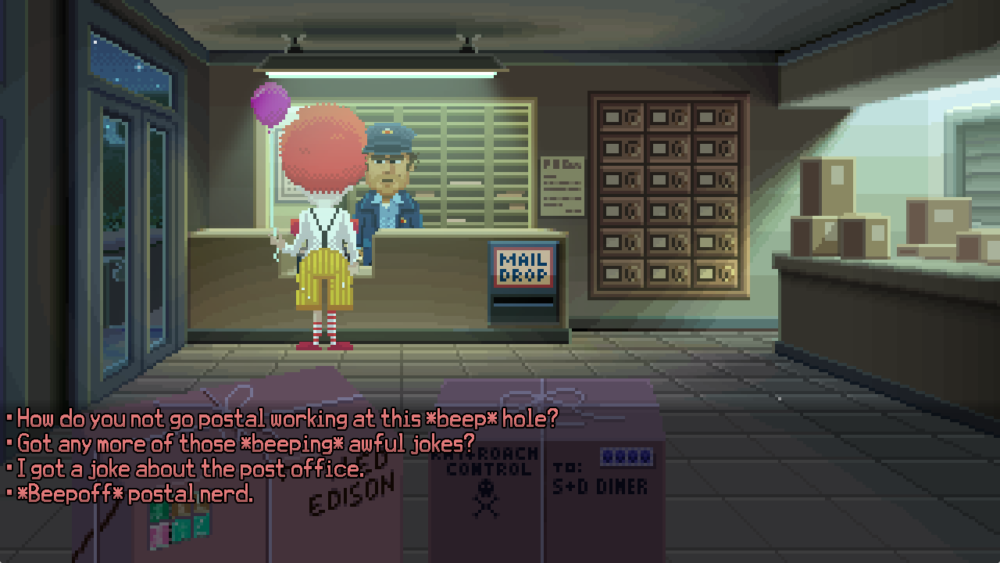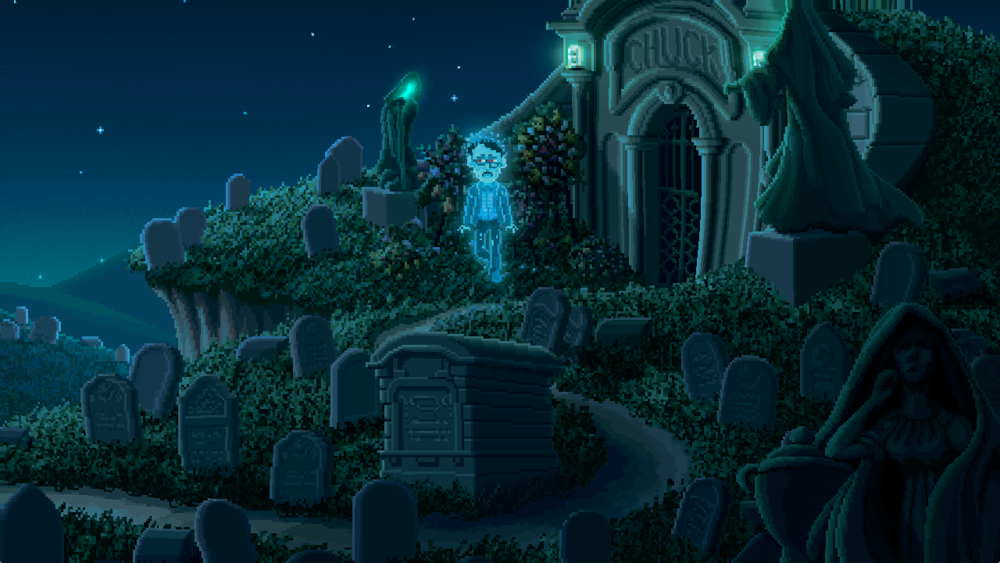TL;DR
Love classic point-and-click adventures? Thimbleweed Park, from Monkey Island creator Ron Gilbert, is a love letter to the genre, packed with intricate puzzles, witty dialogue, and eccentric characters. Set in a peculiar town with a murder mystery, it's a deliberate throwback to the Sierra and LucasArts golden age. While its low-res charm and focus on puzzle-solving might not appeal to everyone, it offers a deeply satisfying experience for fans of the old school. Discover if this nostalgic gem is your next obsession.
While some may not recall the golden era of adventure games, for those who do, Sierra and LucasArts (formerly Lucasfilm Games) evoke memories of epic graphical adventures interwoven with intricate linguistic and problem-solving challenges. For those interested in learning more about LucasArts, now under Disney’s control following their acquisition of the Lucas empire, we recommend Christian Magdu’s insightful tribute article.
Thimbleweed Park presents a unique offering: a low-resolution, 2D point-and-click adventure crafted by Monkey Island creator Ron Gilbert and Gary Winnick. It serves as a clear homage to their classic titles, particularly the original Maniac Mansion. To be direct: if you appreciate (and particularly miss) classic adventures that emphasize puzzle-solving over character death, then Thimbleweed Park is likely to resonate strongly with you. Conversely, if the point-and-click genre is unfamiliar, this review may provide valuable context.
Thimbleweed Park is a seemingly unremarkable town with a population of 80, following an introductory demise. A mysterious figure known as “Chuck” casts a shadow over the community, while the body of a German man is discovered in a local lake. The two FBI agents assigned to the case display a distinct lack of cooperation. What is transpiring in this isolated town, where businesses have shuttered and the residents could be described as… “eccentric”? It quickly becomes evident that the body in the lake represents only the beginning of the challenges within Thimbleweed Park.
Gilbert’s adventure maintains a straightforward and unembellished design. Its aesthetic is defined by its 2D, low-resolution style and eschews extensive exposition, opting instead for flashbacks to develop character backgrounds. Gilbert excels at crafting engaging puzzles, memorable characters, and witty dialogue. Those familiar with the sword fighting from The Secret of Monkey Island can anticipate a similar level of quality. The dialogue is sharp, occasionally unconventional, but consistently insightful and humorous. The voice acting is well-executed, making it difficult to disengage once immersed in the game’s exploration and interactions.
However, it is important to recognize that this is a fundamentally classic point-and-click game, reliant on player curiosity, lateral thinking, and experimentation. Modern audiences accustomed to high-fidelity graphics, extensive in-game assistance, and constant action may find its structure somewhat simple or rigid. The game offers two modes: a more accessible option with fewer and simpler puzzles, and a “hard mode” that provides a greater challenge and additional content, catering to experienced adventure gamers. Furthermore, those well-versed in LucasArts history will appreciate the numerous references and humorous nods to previous titles.
This game, funded through Kickstarter by Gilbert and Winnick, is available for PC, Mac, and Xbox One. While a PS4 version is currently absent, it is likely to be released eventually. Linux, iOS, and Android versions are also confirmed. The game’s modest hardware requirements allow it to run smoothly even on older computers. While a mouse may seem like the natural input device for the genre, game controllers are surprisingly effective, as demonstrated by remastered LucasArts titles such as Day of the Tentacle. The gamepad offers convenient shortcuts, streamlining actions such as constructing sentences with verbs (e.g., “use + rubber duck + with/on/in + bathtub”).
Our experience with Thimbleweed Park was highly enjoyable, and we eagerly anticipate future projects from Ron Gilbert and his team. If Disney does not intend to further utilize the old LucasArts licenses, we hope they will consider selling them back to Ron Gilbert, as he has requested on Twitter. The prospect of a new Monkey Island under his direction is a tantalizing possibility.





